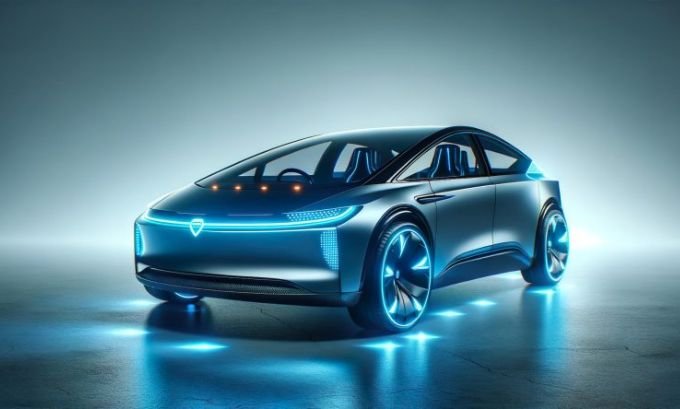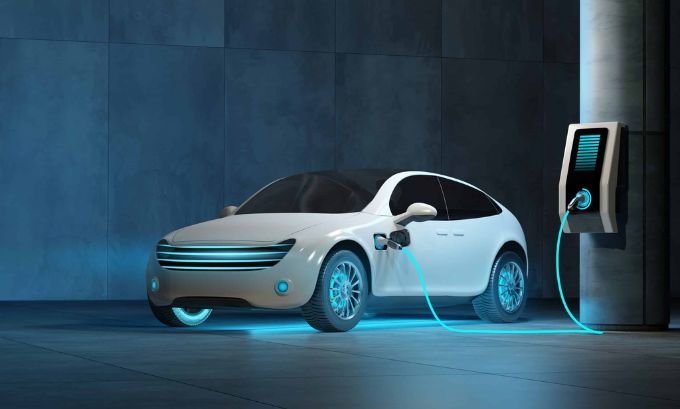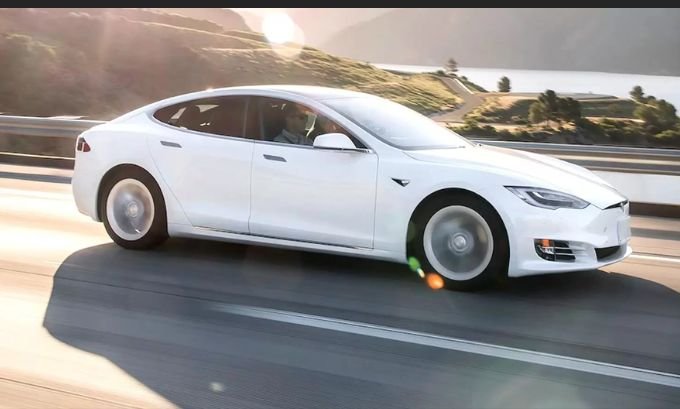Let’s be honest: the conversation around electric vehicles is noisy. On one side, you have die-hard fans promising a utopian future of silent, lightning-fast cars. On the other, you have skeptics pointing to range anxiety, charging hassles, and high sticker prices. So, what’s the real story?
If you’re thinking about making the switch, you’re not just buying a car; you’re buying into a new way of driving. And while the simple answer is that EVs save money and reduce emissions, the truth is far more nuanced and interesting.
Forget the hype and the headlines for a moment. Let’s take a realistic look at what it truly means to own an electric vehicle in 2025.
Table of Contents
The Money Question: Where You’ll Actually Save
Yes, EVs are significantly cheaper to run day-to-day. The savings come from two main places: ditching the gas station and sidestepping most routine maintenance.
Everyone talks about the savings, but where do they come from? It’s not just about the price of gas.
A Farewell to the Pump
The most immediate change you’ll notice is the freedom from volatile gas prices. Electricity costs are far more stable and, on a per-mile basis, much lower.
Let’s ground this in reality. Imagine you drive around 1,200 miles a month.
- In a gasoline car that gets a respectable 30 MPG, you’d burn through 40 gallons. At an average of $3.50 per gallon, that’s $140 a month spent at the pump.
- Now, picture an electric vehicle. An efficient model like a Hyundai Ioniq 6 uses about 25 kWh for every 100 miles. Driving 1,200 miles would consume 300 kWh. If you charge at home at the national average rate, you’re looking at around $51 for the month.
That’s a difference of nearly $90 a month, or over $1,000 a year, that stays in your pocket. For commuters or families who drive a lot, these numbers can easily double.

Breaking Up with Your Mechanic
The other, often overlooked, financial win is the drastic reduction in maintenance. An internal combustion engine is a complex machine with hundreds of moving parts that need regular attention. An EV is fundamentally simpler.
Think about the routine service appointments you can cross off your list forever:
- Oil changes
- Spark plug replacements
- Fuel and air filter swaps
- Exhaust system repairs
This isn’t just a convenience; it’s a tangible saving. Consumer Reports has found that EV owners spend roughly half as much on maintenance over the life of their car. Your main service items become tire rotations and brake fluid checks—things all cars need. Even your brakes last longer, thanks to regenerative braking, where the motor does most of the work to slow the car down, saving your brake pads from wear and tear.
Beyond Your Wallet: The Environmental Reality
Yes, EVs are a greener choice. Even when you account for battery manufacturing, their lifetime emissions are significantly lower than gas cars.
The “are EVs really green?” debate is a persistent one. Critics often point to the emissions from battery production and the electricity used to charge them. It’s a fair question. But the data provides a clear answer.
The term to know is life cycle emissions. This looks at the total environmental impact, from sourcing raw materials and manufacturing the car to its daily operation and eventual recycling.
While it’s true that producing an EV battery is energy-intensive, that upfront carbon cost is paid off over time. How quickly? That depends on how clean your local power grid is. Driving an EV in the Pacific Northwest, with its abundant hydropower, is cleaner than driving one in a region still reliant on coal.
But here’s the key takeaway from the Union of Concerned Scientists: even on the “dirtiest” grid in the U.S., driving an EV still produces fewer emissions than the average new gasoline car. And as our national grid continues to incorporate more wind and solar, every EV on the road gets cleaner every single year.
More importantly, EVs produce zero tailpipe emissions. This has a direct and immediate impact on the air quality in our communities, reducing smog and harmful pollutants right where we live and breathe.
The Heart of the Machine: Battery Life and Driving Joy
Modern EV batteries are built to last the lifetime of the car. Most come with an 8-year/100,000-mile warranty, and real-world data shows they degrade very slowly.
Battery anxiety is real for many prospective buyers. What if it dies? What will it cost to replace?
Fortunately, today’s lithium-ion batteries are marvels of engineering. Data from large EV fleets shows that the average battery loses only about 2.3% of its capacity per year. That means after a decade, your car would likely still have over 75% of its original range. Complete battery failure is rare and almost always linked to a defect covered by the extensive warranties.
But the battery doesn’t just offer longevity; it completely transforms the driving experience.
- Instant Torque: There is no lag. You press the pedal, and the car moves with a silent, immediate surge of power. This makes city driving effortless and merging onto the highway genuinely fun.
- A Quiet Ride: The absence of engine noise and vibration creates a calm, serene cabin. Conversations are easier, music sounds clearer, and you arrive at your destination feeling less fatigued.
- Better Handling: With the heavy battery pack located in the floor, EVs have a low center of gravity. This makes them feel incredibly stable and planted on the road, hugging corners with a confidence that surprises many first-time drivers.
Making the Switch Affordable: A Guide to Incentives
Government incentives can dramatically lower the price of an EV. The federal government offers a tax credit of up to $7,500, and many states add their own rebates on top.
Let’s be real: EVs can have a higher sticker price. Incentives are designed to bridge that gap.
The Federal Clean Vehicle Tax Credit is the big one. However, its rules are complex, with requirements around the car’s price, where its battery components are sourced, and where it was assembled. The good news? You can now often transfer this credit to the dealer and have it applied as an instant discount at the time of purchase.
But don’t stop there. States like Colorado, California, and New York offer their own substantial rebates that can be stacked with the federal credit. Your local utility company might even offer a rebate for installing a home charger. When combined, these incentives can slash the price of a new EV by over $10,000.
Charging: Simpler Than You Think
Most EV owners charge at home overnight. For road trips, the public network of fast chargers is growing rapidly, making long-distance travel entirely practical.
For most people, charging an EV is more like charging a phone than filling up with gas. Over 80% of charging happens at home using a Level 2 (240-volt) charger, which can easily replenish a full day’s worth of driving overnight. You wake up every morning with a “full tank.”
What about road trips? This is where DC Fast Chargers come in. These high-powered stations, found along major highways, can add 100-200 miles of range in the time it takes to grab a coffee and stretch your legs (about 20-30 minutes). Apps like PlugShare or A Better Routeplanner make it easy to plan your stops.
Is the network perfect? No. Rural areas still have gaps, and you might occasionally find a broken or occupied charger. But the infrastructure is expanding at an incredible pace, and these issues are becoming less common every year.

At a Glance: Electric vs. Gasoline Cars
| Feature | Electric Vehicles (EVs) | Gasoline Cars |
|---|---|---|
| Fuel Costs | Lower & more stable | Higher & volatile |
| Maintenance | Minimal (no oil changes) | Regular and more frequent service |
| Driving Feel | Instant acceleration, quiet ride | Slower response, engine noise |
| Home “Refueling” | Yes, charge overnight | No, must go to a gas station |
| Incentives | Up to $7,500 federal credit + state rebates | Typically none |
| Road Trips | Requires planning charging stops | Quick and easy refueling |
Frequently Asked Questions
Q1. What happens if I live in an apartment and can’t install a charger?
It’s definitely doable, but it requires a shift in mindset. You’ll rely on public chargers or charging at your workplace. It’s like not having a washer/dryer at home—you plan around it. As more apartments and workplaces install chargers, this is becoming much easier.
Q2. What about driving in the cold? Does the battery die?
Cold weather does temporarily reduce an EV’s range, sometimes by up to 30%. However, the car is still perfectly functional. Most EVs allow you to precondition the battery and cabin while plugged in, which significantly mitigates this range loss before you even start your trip.
Q3. How long do the batteries really last?
Think of it this way: the battery is designed to outlast the car itself. With warranties covering 8 years or 100,000 miles, and real-world data showing lifespans of 12-15 years, battery replacement is not something most owners will ever face.
Q4. Are they hard to drive?
They are the opposite. With no gears to shift and incredibly smooth acceleration, they are simpler and more relaxing to drive than any gas car. Features like one-pedal driving, where the car slows down as you lift off the accelerator, make city traffic a breeze.
Q5. Is an EV right for me?
If you have access to regular charging, want to lower your running costs, and enjoy a modern driving experience, an EV is likely a fantastic fit. If you frequently drive very long distances in remote areas with few chargers, a plug-in hybrid (PHEV) might be a better stepping stone.
The Road Ahead
So, is an electric car worth it? In 2025, the answer is a resounding yes for more people than ever before. The technology has matured, the infrastructure is catching up, and the financial and environmental benefits are undeniable.
Making the switch isn’t just about adopting new technology. It’s about rethinking our relationship with our cars—from how we fuel them to how they feel on the road. It won’t be a perfect transition for everyone, but it’s a journey that’s well underway. And it’s leading us toward a cleaner, quieter, and frankly, more exciting automotive future.
For sustainable living beyond transportation, explore eco-friendly products at Tokyo Mart, your go-to store for a greener lifestyle.


